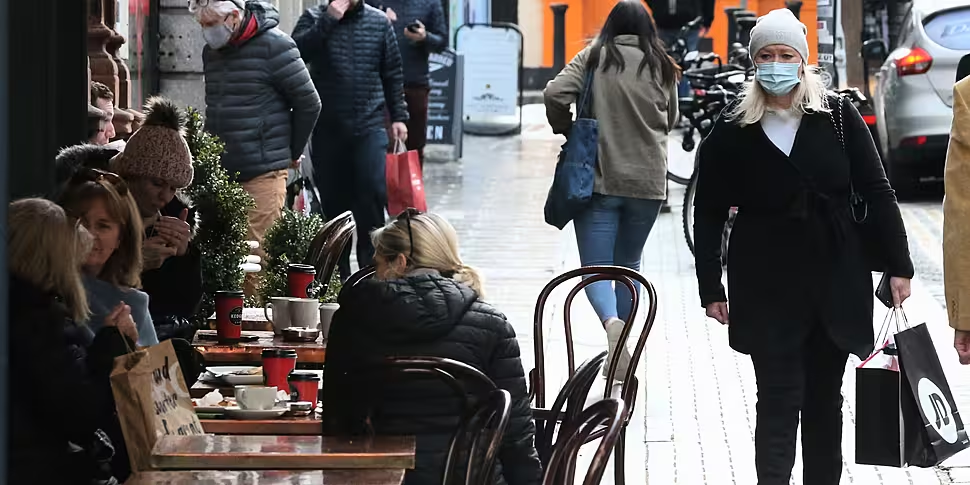Coronavirus restrictions must fall back to Level Three by June 1st at a minimum, according to a Government TD.
Fianna Fáil’s Marc MacSharry was written to his fellow TDs warning that Ireland’s coronavirus response can no longer be based upon “total risk-aversion.”
On Newstalk Breakfast this morning, he noted that the number of people at high-risk to the virus is constantly falling as the most vulnerable are vaccinated.
He said the Government must now implement a new strategy that “puts the needs of broader society front and centre.”
“We must focus on getting to Level Three for June 1st and Level Two for July,” he said.
“I think we then need to look at staying at that level while, at the same time, those most in danger is a diminishing number given the vaccinations.”
Yesterday, HSE Chief Paul Reid told Newstalk that everyone over the age of 70 will have received their first vaccine dose by the middle of next month.
He noted that people in that age group have accounted for 90% of Ireland's virus-related deaths since the pandemic began.
Strategy
Deputy MacSharry said he contacted an acute hospital in Dublin over the weekend and was told that around 60% of the COVID-19 patients being cared for had, “very mild symptoms and were being maintained in hospital for containment rather than anything else.”
“What I would like to see happen is for us to introduce an element of a strategy over the next up to 12 months because between limited supplies of vaccine, the pace of rollout and so on we are going to have to try and do something to assist our society,” said Deputy MacSharry.
“So, what I would like to see, number one, is that we would spread out the period of time between the first jab and the second jab with those two-jab vaccines we have. That has worked in other countries and I think we ought to look at that experience and embrace it.
“The second thing we need to do is increase the amount of step-down facilities for lesser-level care that is required for people with COVID.
“We have Citywest in Dublin for example; I would like to see four or five more regional centres similar to that so that we can give those people that care and have the containment that is required to prevent further spread.”
"Total risk aversion"
Deputy MacSharry admitted that his approach would lead to increased spread of the virus – but warned that we need a strategy to live with the virus until the vaccine rollout is complete.
“We cannot continue with total risk aversion and we must look to the needs of the greater good in society as a whole,” he said.
“Thankfully, those that are elderly and most vulnerable are and will continue to be a diminishing number as vaccination continues but we must begin to put the needs of broader society front and centre.”
Fianna Fáil
He refused to say whether he has faith in the Taoiseach Micheál Martin’s handling of the COVID crisis since he came to power, noting only that he, “would have done things differently” given the chance.
“For example, we have ceded total control of the narrative to the hard-working people in NPHET and other bodies,” he said.
“I think the people look to the Government for Executive control and guidance. NPHET has done a fantastic job in providing advice to us over the last year but I think it is Government’s job to distil that advice into a functioning society.”
Data from AstraZeneca suggests the vaccine is 76% effective after a single dose. This rises to 82.4% when the second dose is administered three months after the first.
Meanwhile, studies in Israel suggest the Pfizer vaccine could up to 85% effective in reducing symptomatic COVID after a single dose.
You can listen back here:









